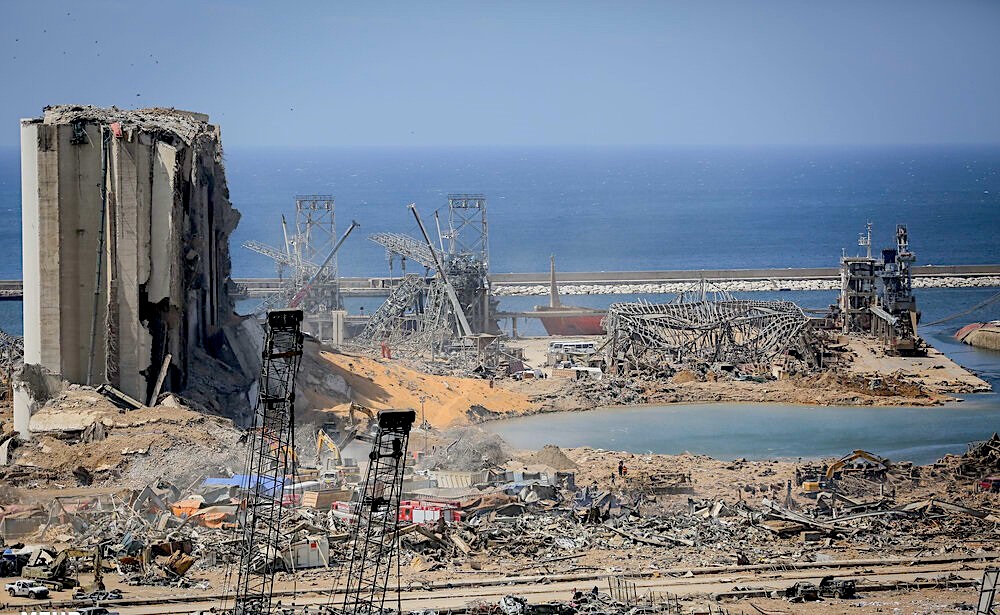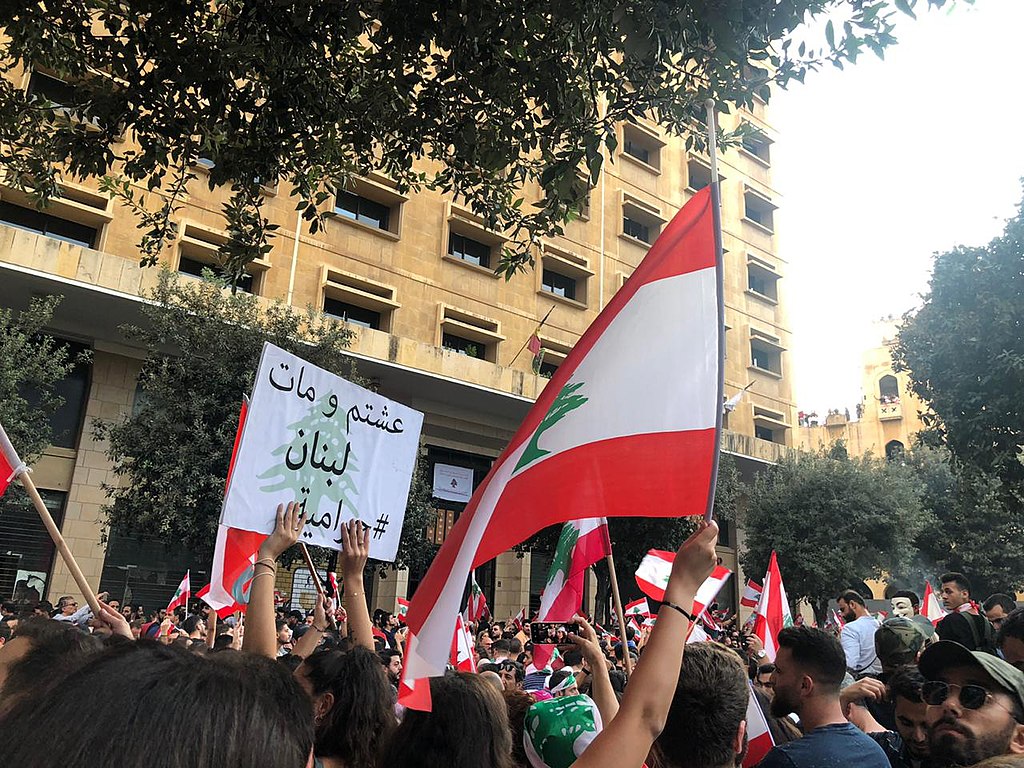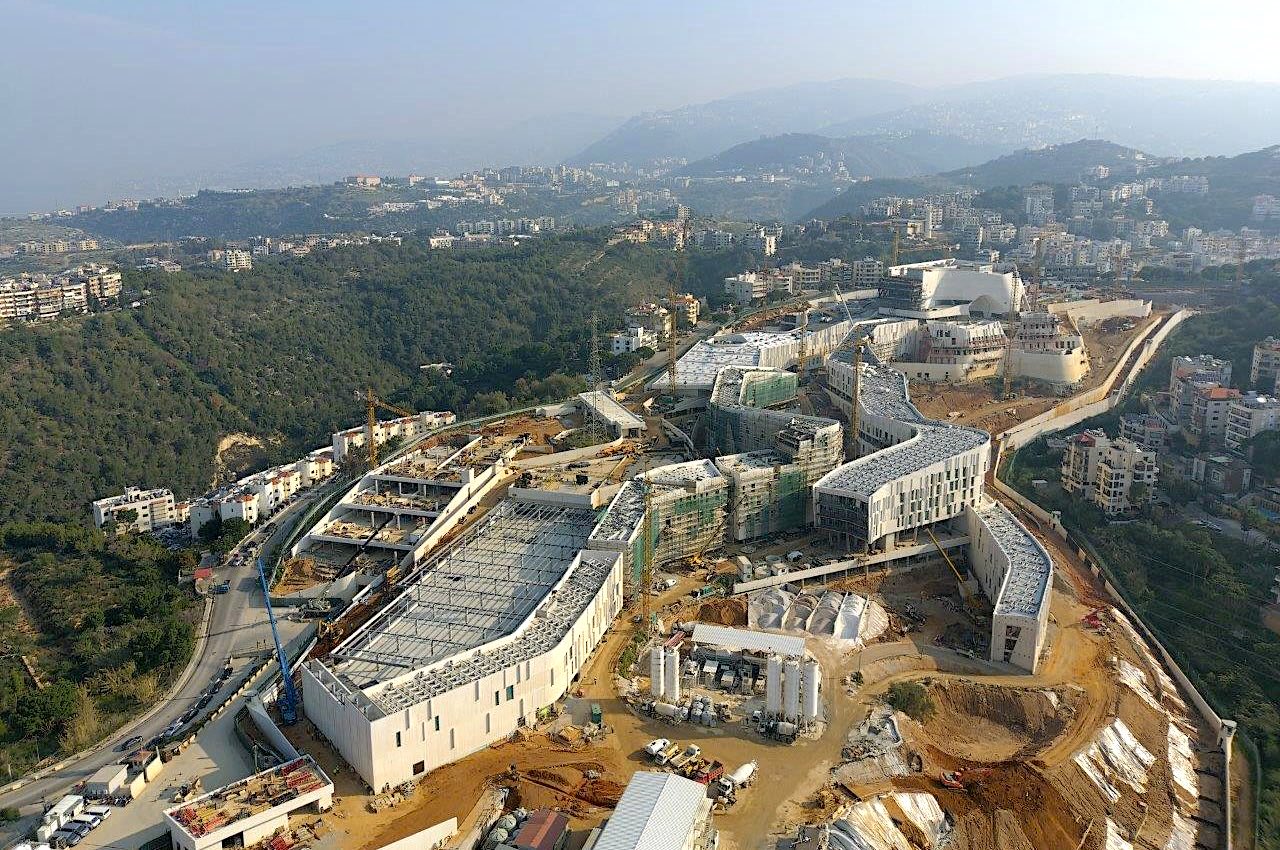Lebanon’s economic crisis is being compounded by political stalemate, corruption and Western interference, while Hezbollah’s political position has weakened because of a flailing relationship with its Christian ally, writes As’ad AbuKhalil.
By As`ad AbuKhalil
Special to Consortium News

Being in Lebanon after a four-year absence makes things clearer to the eyes of the visitor. You get to see the reality not through the filters of Western media, Western-funded local media, or through the NGOs, all of whom are beholden to Western agendas.
The country has been experiencing its worse economic crisis and, according to the World Bank, one of the three worst economic crisis in the world since the mid-19th century. But people are finding ways to cope to a varying degree or another, depending on social class and political connection.
Indubitably, wars and crises in the contemporary history of the Arab east have provided Palestinians, Syrians and the Lebanese people with a unique degree of resilience and forbearance. They have withstood so many pressures and conspiracies that they cope with challenges in ways that are original and inventive.
Of course, they suffer greatly. A leading Lebanese psychiatrist informed me that close to one quarter of Lebanese are dependent on tranquilizers and antidepressants. Addictions to alcohol and hard drugs are also rampant in the country.
The suffering of the people in the region is real and American-imposed sanctions — whether on Iran or Syria or on parts of Lebanon — have clearly prevented societies and governments from finding ways to evaluate the suffering of their people. But all governments of the region are culpable, as corruption has deepened the crisis, even if the foreign hand sows intrigue and increases the suffering.
The Lebanese political class, however, should not in any way be absolved of the responsibility for the economic collapse and for the criminal negligence over the Port of Beirut blast in August 2020.
But the U.S. is never far from the scene. The U.S. government still sponsors some of the most corrupt elements of the ruling class. It has sanctioned people in the name of fighting corruption. However, in all of these cases bar one, those punished were sanctioned not for corruption but for their political alliances with groups that dare to defy and resist Israel.
The key corrupt political figures, including the Lebanon’s central bank governor and chief architect of the economic collapse, Riad Toufic Salameh, remain sheltered by the U.S. government.
The U.S., since the collapse, has continued to protect and defend the governor of the central bank claiming that there is no evidence of his corruption. Several European courts have, however, found ample evidence of massive corruption and exorbitant wealth accumulated through alleged plundering of the Lebanese Treasury.
Inequality and Suffering
I am told that people now are coping better than before, compared to a year ago, but it depends on who you ask. Impoverished people have little capacity to cope, while the wealthy can buy water cisterns, electric generators and solar panels. They can also hire private security guards to protect their private wealth and expensive real estate.
The poor don’t have a leeway, although many Lebanese families benefit from the billions in remittances that Lebanese immigrants send back to families in Lebanon. Those remittances help keep the economy afloat – relatively speaking –, providing ‘fresh dollars’ to the Lebanese economy, which is now thoroughly dollarized — people need to carry Lebanese pounds as well as U.S. dollars.
Obviously, U.S. dollars are more desired than the Lebanese pound, whose value has severely plummeted during the last few years. Inflation in Lebanon has reached levels never seen before. Taxi fares are now 100 times than what they were during my last visit four years ago.
Political Stalemate
Furthermore, to make things worse, the country is experiencing one of its typical political crises. Parliament has failed to elect a new president. On the one hand, Hezbollah and its allies, chiefly the predominantly Shiite Amal Movement headed by the speaker of parliament, insist on one candidate alone — Sulayman Franjiyyah, a scion of a feudal family with little education and understanding of the crisis.
He has failed to get any degree of support from Christian political forces. The post of president is reserved for Maronite Christians, while the speakership of parliament is reserved for Shiites and the post of prime minister is reserved for Sunni Muslims.
The other side, supported by the West and Gulf countries, obviously chose a different candidate: Jihad Azour, a former finance minister who became a senior official at the International Monetary Fund (IMF).
Neither candidate is capable of winning the second round of the election in the Lebanese parliament. There is no direct election of presidents in Lebanon via popular vote.
Hezbollah has worsened its political plight in Lebanon because it has allowed its alliance with the Christian Tayyar Party to fail. Its only key Christian ally has now gone its own way and is supporting a rival candidate to that of Hezbollah.
So, Amal and Hezbollah, both Shiite parties, now insist on one Christian candidate against all others. Hezbollah seems to have little idea how that helps its enemies by placing itself in a purely sectarian corner.
a. There is no presidential candidate who seems to capture support across the board. Hezbollah is also contributing to the stalemate by insisting, alongside its ally Amal, that Franjiyyah is the only acceptable candidate. Any other candidate is being considered a “defiance candidate.”.
Foreign Interference and Influence
The country clearly suffers from foreign intervention and influence, the biggest of which comes from the United States. I sat for a long session with the foreign minister of Lebanon and the first question I posed to him was, “Can you name me the Iranian ambassador in Lebanon?” He failed to produce the name.
I told him the exchange would be on the record and that I would use it publicly to show that what is referred to in Western media as ‘Iranian influence in Lebanon’ is miniscule compared to the heavy-handed, daily U.S. and European intervention in the affairs of Lebanon.
There is no aspect of Lebanese political and economic life that has not had a direct influence from the role played by Western governments.
They control the Lebanese armed forces, the internal security forces, the banking sector, the Ministry of Interior, the Ministry of Defense, the Justice Ministry, the Foreign Ministry and they are also involved in the affairs of all other key ministries in Lebanon. Western governments are even involved at the municipal level through direct funding engineered to politically undermine the popularity and power of political parties not aligned with Western and Israeli interests.
The Lebanese political system is at a stalemate as all parties await the results of the Iranian-Saudi agreement or understanding. We still don’t know the details of the agreement. So far, the Saudi government has not implemented its agreement with Iran on unspecified issues on cooperation in Lebanon, or in Syria.
Furthermore, the Iranian government, unlike the Saudi and Western governments, defers on all Lebanese matters to its trusted ally Hezbollah and its leader Hasan Nasrallah. Western and gulf governments operate in a different fashion. They treat their allies as subservient clients and tools and leave them no room for maneuver. They are only permitted to obey orders and receive funds in return.
Daily Struggle
The Lebanese people are going about their lives struggling with hyper-inflation and stand in line at their banks hoping to get a minuscule portion every month from their deposits stolen from them. The IMF and the World Bank indicate they will rescue Lebanon on a very small scale, provided the ruling political class implements reforms.
But given the record of reforms dictated by the World Bank and the IMF worldwide, one cannot look forward to the implementation of those reforms, especially as these often mean a substantial reduction in expenditure on health and education, as well as the sale of public assets and the destruction of the public sector.
Lebanon can only avoid collapse and the total suffering of its people by forging ahead with a radical revolutionary program. Traditional political parties cannot be relied on. They remain dominant, while so-called “change” parties and personalities are mere tools of the same West-Gulf agendas that run NGOs.
The Left in Lebanon is non-existent, in terms of parties. The Lebanese Communist Party is now indistinguishable from Western-funded NGOs.
The real enemies of the Lebanese people as far as handling the economic collapse is concerned are internal – their Gulf and Western-backed political leaders. The Lebanese do not fear Israel anymore after volunteers in South Lebanon taught Israel a bitter lesson in 2006. They are willing to do the same if Israel dares to encroach onto Lebanese territory again.
Taking care of their political and economic system is the Lebanese people’s real challenge.
As’ad AbuKhalil is a Lebanese-American professor of political science at California State University, Stanislaus. He is the author of the Historical Dictionary of Lebanon (1998), Bin Laden, Islam and America’s New War on Terrorism (2002), and The Battle for Saudi Arabia (2004) He ran the popular blog The Angry Arab. He tweets as @asadabukhalil
The views expressed are solely those of the author and may or may not reflect those of Consortium News.




The US, “the richest, most advanced country in the world” (that seems to be becoming less and less true), and yet with all that wealth and power America’s influence in the world seems to be consistently and universally malign and self-serving. Empires rot from the inside and produce political actors like Lindsey Graham and Joe Biden & Co. That these clowns are accepted and tolerated by society as serious thinking human beings is a good indication that everything has become just a facade and the end is nigh. And the “high-minded” leaders of the EU are one and the same.
Just imagine what societies and cultures could achieve if they were honestly supported or even just let alone. Foolish empires poison everything.
It’s incredibly kind of you to call those two men clowns, but that is inaccurate. Biden is a dotard and a puppet for the Empire, Graham is a classic snake-oil salesman who serves the Empire. The country they call home is the entity which is in deep trouble, the American-based World Empire is not in any trouble at all, it is still ahead of the game. How can I claim this ? Because this Empire, which is the most powerful one ever, is so much in control of its host that although it knows that the World is quite knowledgeable about its antics and its real owners, it actually does not care, so confident is it that success against Russia and China is a slam-dunk.
The Empire stalwarts and placemen like these two men, are only presently concerned to stop Trump from regaining the Presidency. Trump was fooled numerous times in his first term, second time round he could seriously damage the Empire’s power structure, by for example, entirely closing down the CIA ( about 24,000 employees ) and returning ALL US overseas military to the US.